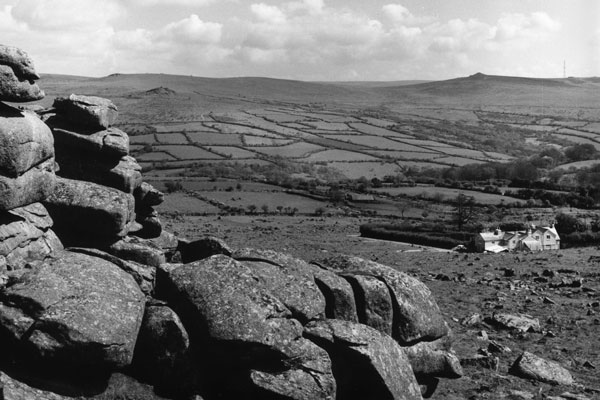‘How was your journey?’ I said. In summer, the place next door is let to visitors on a weekly basis. We share a driveway, and I generally get to meet whoever comes to stay. Last week’s visitors were German. The father and the two teenage boys were tall, gangling and mild. I met them soon after they had arrived and were unpacking the car. Silent, gnomic presences in the background, the sons continued dutifully with the unloading, leaving it to their parents to interact with the inquisitive natives.
They’d driven from Germany, said the Dad. Motoring across Belgium and France was easy. From Dover to Devon was less so. It was an ordeal, frankly. Not the least of their trouble was that somebody had chosen to commit suicide by throwing themselves from a motorway bridge and they’d been stuck in the resulting jam for hours.
A few days later I encountered them again in the driveway as they unpacked the car after a day on the beach. They seemed dazed, perhaps by the blistering heat. ‘How are you getting on?’ I said. The narrowness of the country lanes was testing his courage, admitted the Dad. The beaches were very nice, though, interpolated the Mum, and the scenery was oh so nice. ‘But the people are a little crazy, no?’
She explained that last evening the family was enjoying a quiet meal in a pub when a mass brawl had erupted at the bar. ‘We thought the pub looked so nice, so quiet, and we were eating our fish and chips and suddenly everybody was fighting and throwing chairs,’ she said. Then the police came. The situation after that she described as ‘very police’. The policewoman who took a statement from them was ‘so nice, so beautiful’.
I encountered the family again early next morning. They were sitting in their car about to set off somewhere. Dad looked relieved to see me. He hopped out of the car to pick my brains. They were going on Dartmoor for the day, he said. Could I please give him directions avoiding the narrowest roads if possible, and recommend a nice place to head for? I most certainly could, I said, for little did he know that I am a mad evangelist for the place.
I ran indoors for my Ordinance Survey Outdoor Leisure map 28 held together with orange duct tape. I spread out the map on the bonnet of his car, put my fingernail under Haytor, and suggested he went there. It’s a Mecca for day trippers, I said, apologetically. But the road to Haytor is the widest and the least tortuous approach; the views from Haytor the most spectacular in Devon; and there is a car park, tourist information office and gift shop. He might not want to hang around there, I said, but he could get his bearings from the granite outcrop if he decided to hike off into the stony wilderness behind it. And if the mood took him, he could buy a souvenir genuine hide keyring from the gift shop afterwards.
As their car drew up later that evening, I went out to greet them. ‘How was Dartmoor?’ I said, failing to keep the proprietorial tone out of my voice. Their lanky sons were their usual silent, enigmatic selves; mother and father looked stricken, however.
They had gone to Haytor, as I’d suggested, said Dad. They’d walked up the hill then climbed to about halfway up the 100-foot high tor when they’d heard shouting. At the summit, they learnt from other tourists that a young woman and a small boy had just fallen to their deaths. (Later, on the car radio, they’d learnt that the woman had set the boy on her shoulders and jumped deliberately.) The emergency services, including a police helicopter, were quickly on the scene and Mum was interviewed by the police again.
But from this desperately tragic event, the mother had selected, seemingly at random, a particular aspect on which to vent her perhaps confused emotions. What had most impressed and outraged her sensibilities, she claimed, was the awful behaviour of the public. From the sudden increase in traffic, it was obvious to her that once news of the tragedy had spread, ghouls had jumped in their cars and made purposefully for the beauty spot. Elderly couples in collapsible chairs, their mouths crammed with food, she said, were watching the recovery of the bodies avidly through binoculars, as though at a sporting event. Never before had she seen such crass behaviour as she had witnessed that afternoon. She didn’t know whether to laugh or cry, she said, verging now on the latter.
‘We English are a crass and brutal nation,’ I said, by way of a tongue-in-cheek explanation, ‘because they don’t bother educating us. But we have our good points.’
‘I hope so,’ she said with passionate sincerity, tears springing into her eyes. ‘I really hope so.’







Comments